Mistakes and lessons from the Indigenous voice referendum
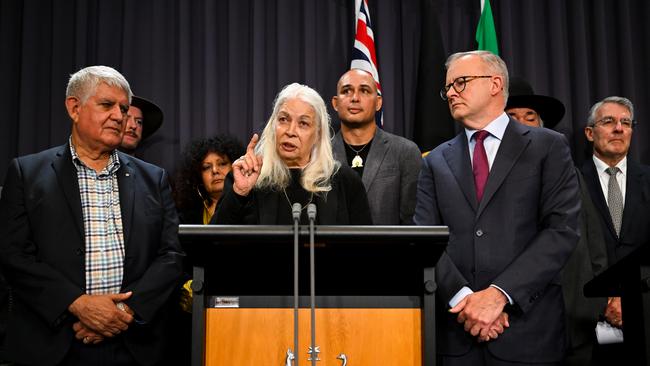
“Aboriginal and Torres Strait Islander peoples are in shock and are grieving the result. We feel acutely the repudiation of our peoples and the rejection of our efforts to pursue reconciliation in good faith. That people who came to our country in only the last 235 years would reject the recognition of this continent’s First Peoples – on our sacred land which we have cared for and nurtured for more than 65,000 years – is so appalling and mean-spirited as to be utterly unbelievable a week following. It will remain unbelievable and appalling for decades to come.”
There has been little appetite for public discussion about lessons to be learnt from this abject failure. Some of the key proponents saw nothing wrong with the process and the wording of the proposed change. They think racism played a key part in the result. For example, the key Indigenous leaders claimed, “It is clear no reform of the Constitution that includes our peoples will ever succeed. This is the bitter lesson from 14 October.” If they’re right, there will be no point in attempting again constitutional recognition of First Australians.
But they may be wrong – and I hope they are. There may be a prospect of future constitutional change but not with the process that was adopted and not with the wording that was proposed in 2023. It’s time to begin the conversation about past mistakes, before we all start forgetting what went on.
Since the disastrous referendum result, Labor stalwarts with a strong commitment to Indigenous rights like Paul Keating and Peter Garrett have publicly lamented the basic errors made during the 2023 campaign. Several Aboriginal leaders who were members of the government’s Referendum Advisory Group have admitted there was a need for a more inclusive process and more precise wording of the proposed change to the Constitution.
‘Let’s all have the humility to admit our mistakes, regroup, forgive the hurts, and move on, seeking the due constitutional recognition of First Australians.’
Celebrating his 80th birthday, Keating gave a broad-ranging interview in The Australian Financial Review published on February 21, 2024, declaring that the voice referendum was “a mistake from the start”. He disclosed that he had told Marcia Langton and Megan Davis back in 2016 that he opposed the constitutional route. He said, “A lot of clever Aboriginal people have wasted a lot of years on this issue.”
Responding to the interview, Langton said: “Paul Keating was right. We should have proceeded to legislate the voice concept of regional Indigenous representation and joint decision-making before a referendum.” Mick Gooda repeated his criticism of the “crash or crash through” approach adopted by Anthony Albanese and key Indigenous advisers like Noel Pearson who, during the campaign, had attacked Gooda as a “bedwetter” for wanting to investigate alternative wording of the referendum proposal.
Shortly thereafter, Garrett’s observations were published in The Weekend Australian. He thought it was “a very disappointing result, particularly for Aboriginal people who had championed the voice – but not entirely unexpected, given the fact that it was opposed very early on by the alternative prime minister”. Garrett observed: “(Peter) Dutton’s act was highly regrettable. Mr Albanese probably in hindsight should have said, ‘If we don’t have the support of the Opposition Leader, it’s pretty clear that it can’t succeed.’ He didn’t want to disappoint many people who felt that it should have been put anyway, including the Indigenous leadership. That was probably a mistake in hindsight.”
When putting my own suggested wording for the constitutional change in February 2023, I was not claiming the legal acumen to decide single-handedly the ideal wording of the Constitution. I was putting forward a suggestion I thought was consistent with the architecture of the Constitution, with what had been proposed by the Referendum Council in 2017 and with the limits on the voice that its proponents were claiming could be imposed by the parliament.
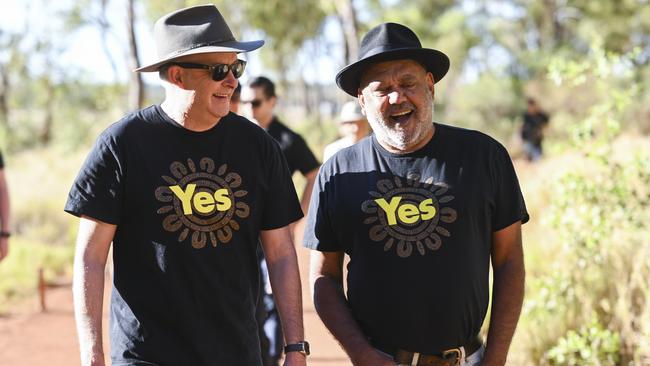
My suggestion was a new section 127 of the Constitution: “There shall be an Aboriginal and Torres Strait Islander Voice with such structure and functions as the Parliament deems necessary to facilitate consultation prior to the making of special laws with respect to Aboriginal and Torres Strait Islander peoples, and with such other functions as the Parliament determines.” By putting this suggestion, I was hoping to pressure the Albanese government to widen its circle of consultation, providing at the very least a transparent parliamentary committee process open to recommending changes to the wording.
I was also hoping to pressure members of the Liberal Party to come on board with a tighter provision that would be seen to be more consistent with the Liberal Party’s philosophical approach and objections, in so far as such objections were philosophical and not simply the result of a deliberately negative spoiling strategic approach to being in opposition.
The Albanese government decided to forgo a constitutional convention. And by the time it announced the setting up of a parliamentary committee process, the proposed wording of the constitutional amendment was already set in stone.
One of my concerns was the breadth of the constitutional entitlement of the voice to make representations not just on proposed laws and policies but on routine administrative decisions by public servants whenever a decision was to be made relating to any Aboriginal or Torres Strait Islander person.
In administrative law, if a person has an entitlement to make a representation to a public servant making a decision about matters relating to the person, there is an entitlement to receive adequate notice and adequate information so as to allow the making of a reasoned representation. I thought such a constitutional entitlement could bog down our system of government, reducing, rather than enhancing, government’s capacity to “close the gap”. Some argued the parliament could limit the extent to which these representations could be made. But there was strong disagreement among some of the nation’s leading lawyers.
In February and March 2023, I was at pains to make clear to government that my legal concern with the wording was not so much the legal effect of government decisions made without appropriate consultation with the voice but with the legal effect of claims made by the voice prior to the making of any government decisions relating to Aboriginal and Torres Strait Islander people.
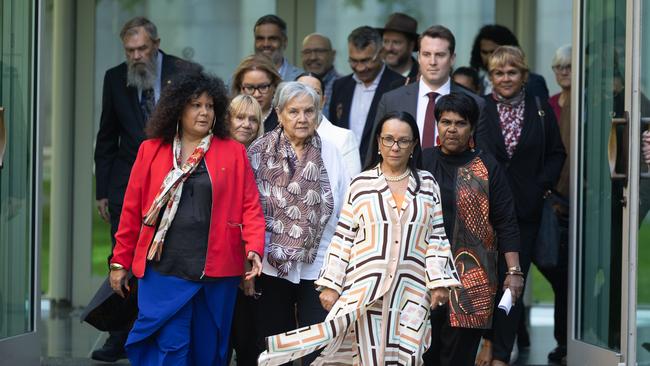
Could the voice glue up the system of government by asking the courts to direct public servants to give notice to the voice prior to the making of any relevant decisions? And could the voice further glue up the system of government by asking for those public servants to provide sufficient information prior to the making of any decision so as to allow the voice to make a reasoned representation? And could this gluing up occur even if parliament were able to legislate that public servants give minimal, if any, consideration to voice representations once made?
I thought it essential that the Solicitor-General be asked to advise on these questions and that his advice be tabled in the parliament. The government declined to do so, assuring us there was no problem despite the advice of lawyers (far more experienced than me) that the problems were real and insurmountable. Instead of asking the Solicitor-General to advise on the legal requirements for public servants to provide notice and relevant information to the voice prior to the making of relevant decisions, the government simply asked him to advise on the fairly uncontested question: “Would the power to legislate ‘with respect to matters relating to the Aboriginal and Torres Strait Islander Voice’ in proposed s 129(iii) of the Constitution empower the Parliament to specify whether, and if so, how, Executive Government decision-makers are legally required to consider relevant representations of the Voice?”
In effect, the Solicitor-General rightly advised that the parliament had the power under proposed s.129(iii) to order public servants to disregard or give only the most perfunctory consideration to any representations after they had been received from the voice. But because he was not asked, he gave no advice on whether parliament had the power to overrule the constitutional entitlement of the voice to make the representations in the first place. Absent a valid legislative provision, the voice would always be entitled to receive notice of a pending decision and sufficient information to make a reasoned representation prior to the making of the decision. That’s just basic administrative law. This would be the case even if parliament enacted a valid provision permitting public servants to disregard or give the most fleeting consideration to voice representations once received.
While the Solicitor-General was focused on the legal effect of public service decisions after any representations had been made by the voice, I was focused on the legal effect of public service neglect or non-transparency prior to the making of representations by the voice. They were completely different questions. The first was agreed and non-controversial; the second was contested and very controversial. I thought it worthwhile to agitate for my amendment when 2GB talkback radio host Ben Fordham gave it his backing.
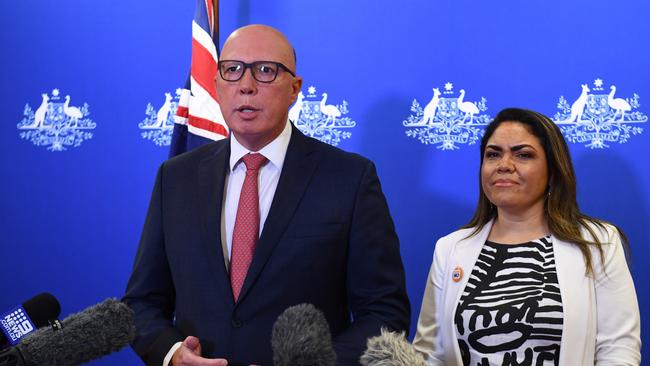
But once the government indicated its intransigence with the announcement of its proposed wording on March 23, 2023 (prior to the setting up of the parliamentary committee), I abandoned my proposed amendment and suggested the government’s proposal be tweaked to provide that the voice’s constitutional entitlement to make representations be confined to parliament and ministers rather than to parliament, ministers and public servants. By then, the Liberal Party had joined its junior Coalition partner, the Nationals, in opposing the referendum. Very few sitting Liberals were lured across into the Yes camp. All was lost.
Back in August 2022, Malcolm Turnbull had changed his position and committed himself to a Yes vote. But privately he maintained his political analysis that there was never any prospect of the referendum getting up.
Five months after the referendum, Lech Blaine published his profile of Dutton as a Quarterly Essay. This is how Blaine described his conversation with Turnbull during the course of the referendum campaign: “As prime minister, (Malcolm Turnbull) framed the voice as a ‘third chamber to parliament’ and predicted that a referendum on the matter would ‘go down in flames’. This was based on his bitter experience as the leader of Australia’s republic movement. ‘Why would you listen to Malcolm Turnbull on referendums?’ he asks now. ‘They’re all geniuses. Let’s hope they are. And I’m proved terribly wrong.’
“Turnbull has backflipped on his previous opposition to a constitutionally enshrined advisory body. He is going to vote Yes. But he insists that No will win, due to a country with a phobia for constitutional change. And he believes this would have been the result anyway, with or without Dutton’s scare campaign … ‘If it goes down, a lot of people will round on Albanese and say it’s all his fault,’ says Turnbull. ‘He’ll get blamed for something that was probably never winnable’.” Turnbull was right all along. And many politically literate people on both sides of the referendum case knew he was.
Would it have been better for me to have remained silent, backing the government proposal from the outset at Garma in July 2022 and declining to comment publicly on the need for amendment to the proposed wording? I thought not, and I am still of that view.
I addressed many audiences and engaged in lengthy discussions up and down the country last year. Every audience contained three groups: the rusted-on Yes voters; the committed No voters; and the undecided. Particularly with church audiences, I thought it essential to be completely candid, outlining the complexities and the problems, before then stating my own personal choice to vote Yes, and why. I was happy to vote Yes, despite the flaws. I was prepared to admit what those flaws were. Nothing in life is perfect. No constitutional change is perfect. We had a choice between an imperfect set of words that would honour what was being sought by a significant cohort of the nation’s Indigenous leaders who had proven track records of commitment to their people, and an unamended Constitution that left the issue of constitutional recognition of our First Peoples for another generation to determine. I thought the time had come for change.
In the last few weeks of the campaign, it was clear that the referendum was lost. All the polls were going south relentlessly.
Some of the referendum’s proponents started a narrative that failure would be due to the inherent racism of Australian society. I thought it inappropriate that such a narrative take hold. I gave three interviews in the fortnight before the vote highlighting that the likely failure of the referendum would be the result of the government’s abuse of process and overbroad, insufficiently scrutinised wording of the provision.
I admire those Australians who throughout the campaign committed themselves unreservedly with their time and resources to advocating for the proposed amendment, despite the shortcomings of process and wording. Having been an advocate for Indigenous rights in the public square for the past 40 years, I thought it necessary to do all I could to improve the process and the wording. I failed, as did many others. I am sorry for the hurt caused to those who thought I should overlook the shortcomings in the hope that the public would get with the vibe, go with the flow, and vote Yes in overwhelming numbers. But that’s just not the way that constitutional change has ever happened in Australia. And it won’t next time, either.
Buckets of money from the corporate sector in support of a worthy cause are no substitute for the hard work of getting the wording right and winning cross-party support in the parliament. Let’s all have the humility to admit our mistakes, regroup, forgive the hurts, and move on, seeking the due constitutional recognition of First Australians.
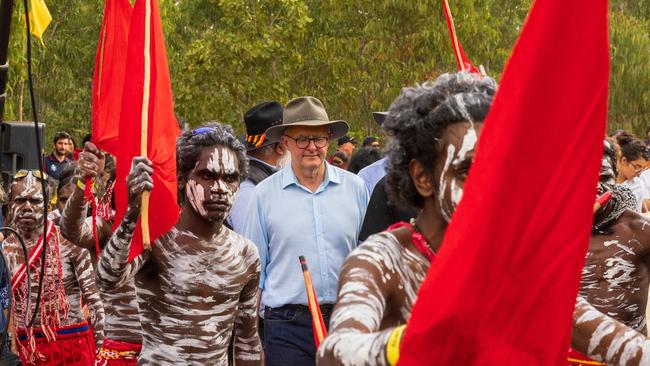
We won’t ever amend the Constitution unless we first get most members of parliament on board, and unless we can assure the public that there is nothing to fear, and that there is no unresolved legal complexity and uncertainty. And when it comes to amending the Constitution to recognise the First Australians, there will be no point unless the key Indigenous leaders are advocating the change with one voice. Though they were devastated by the 2023 defeat, these leaders had sufficient hope to declare in the midst of their despair: “We have faith that the upswelling of support through this referendum has ignited a fire for many to walk with us on our journey towards justice. Our truths have been silenced for too long.” We need to kindle that fire and continue that long journey.
Having had cause to reflect on “the bitter division of the voice debate”, Professor George Williams, who was a member of the Albanese government’s eight-member Constitutional Expert Group, has now said: “The nation needs a long-term approach to constitutional reform, not one focused on the short-term political cycle. The best model is a small, nonpartisan constitutional commission tasked with reviewing the Constitution and assessing reforms with the community and our political leaders. The best ideas should then be road-tested at a popular constitutional convention every 10 years before being put to the people at a referendum. If proposals … cannot pass the gauntlet of the commission and convention, they should proceed no further.”
Williams was considering a proposal for four-year parliamentary terms – a proposal far less controversial, far more familiar and much less complex than the voice. If only the expert group had proffered such advice in 2023. If only such advice had been heeded by Albanese and his cabinet colleagues.
During the 1993 native title debate, Keating was fond of saying, “Good policy will be good politics”. The lesson of 2023 is that good process will yield good policy, which will produce good politics, which might then result in a popular positive referendum result.
Last year, the horse fell at the first hurdle of process and then went way off track. Next time, we could all do better by following the basic rules of constitutional change.
These are extracts from Frank Brennan’s Lessons from our Failure to Build a Constitutional Bridge in the 2023 Referendum (Connor Court Publishing, 2024), published this week.

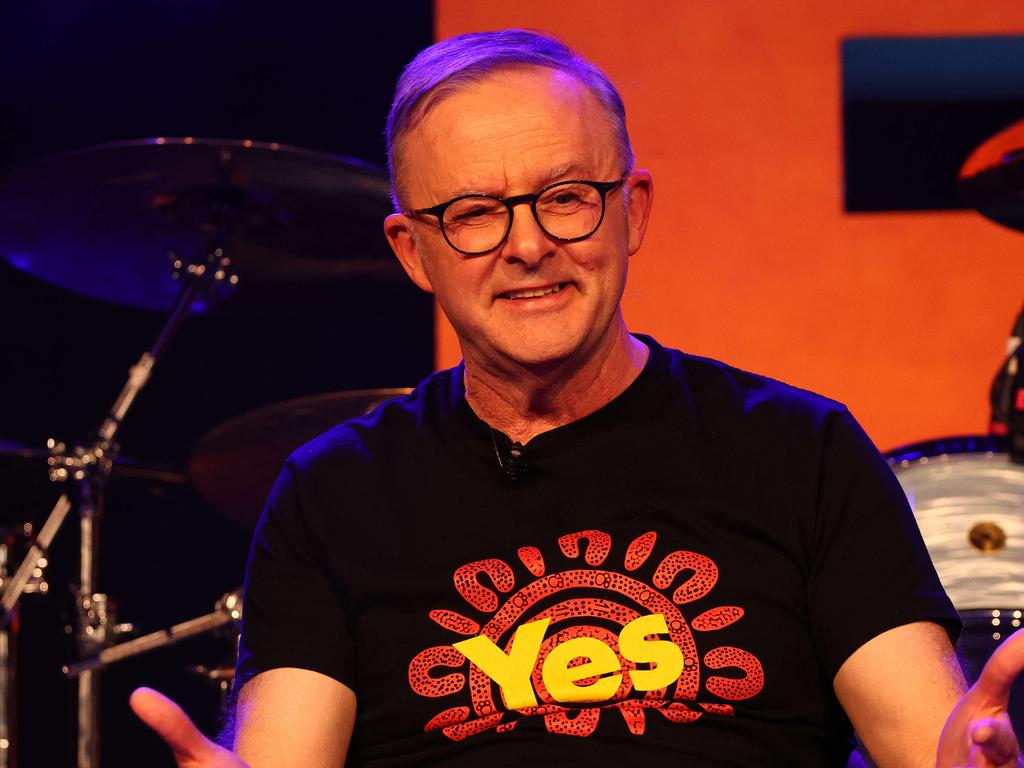
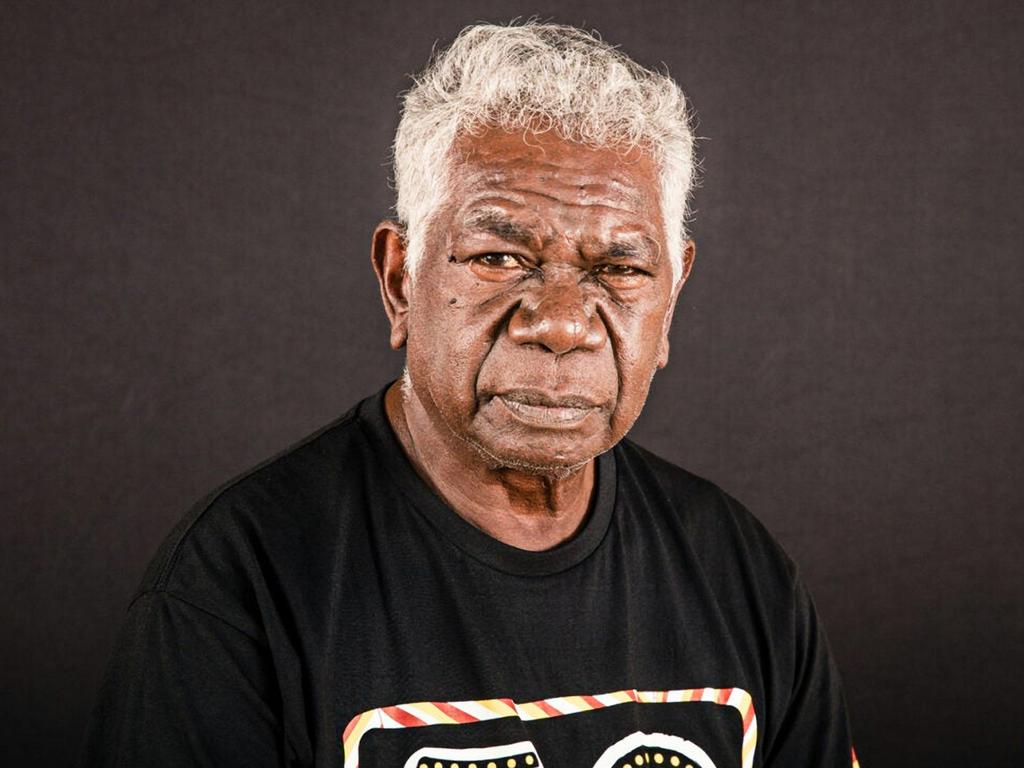
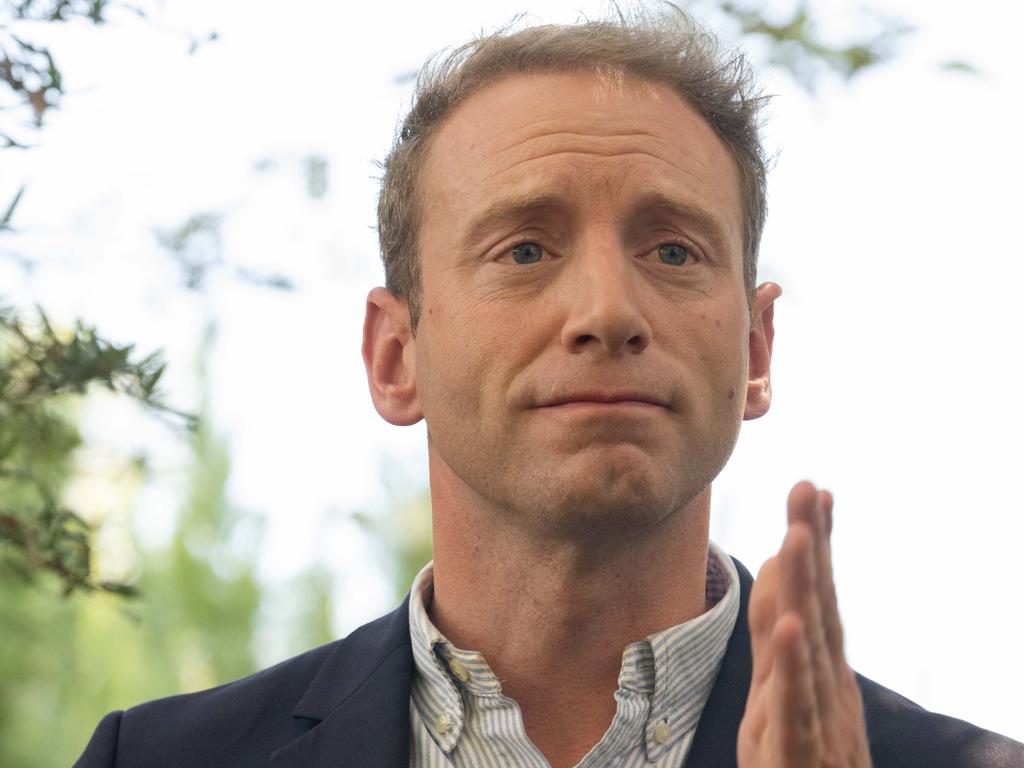

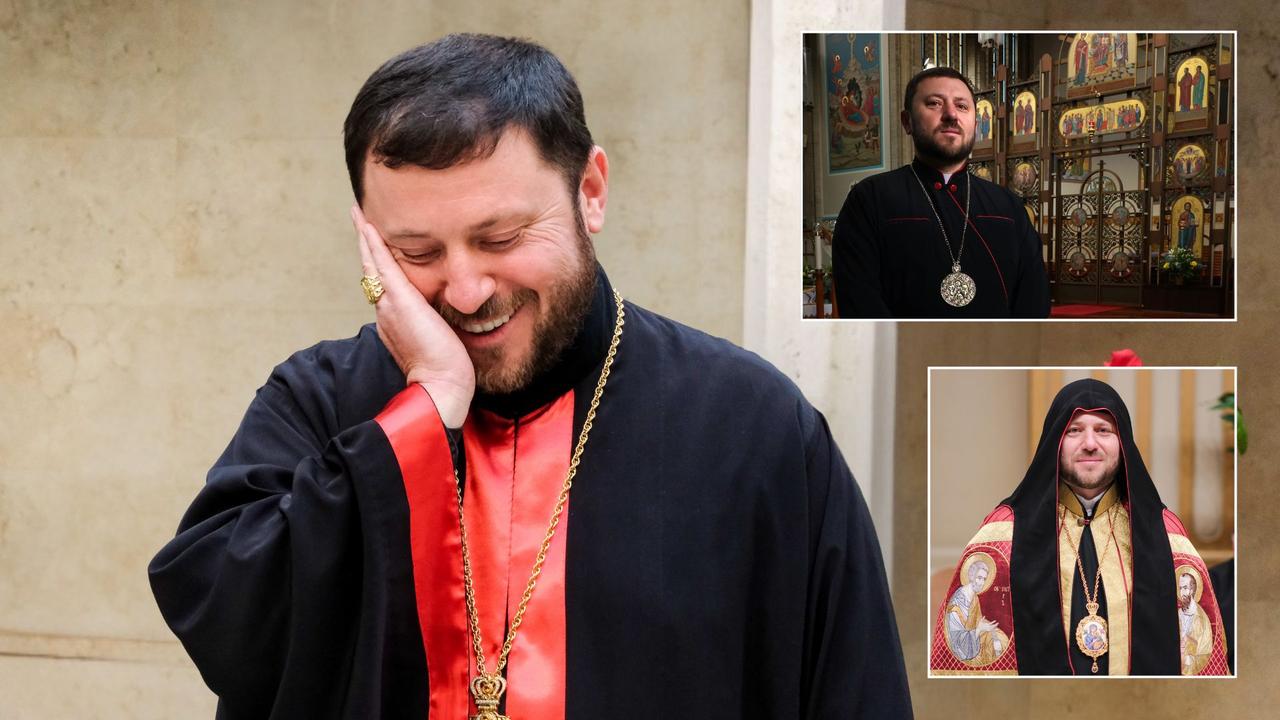
The result of the 2023 referendum on the voice was a disaster for the country and a tragedy for First Australians. A week after the 40:60 loss, the key Indigenous leaders who had dealt with the Albanese government during the campaign broke their silence and issued a powerful statement saying: